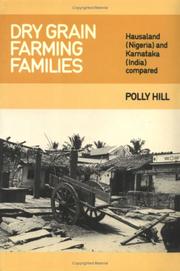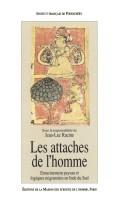| Listing 1 - 5 of 5 |
Sort by
|
Book
ISBN: 0700701060 Year: 1978 Publisher: London Curzon
Abstract | Keywords | Export | Availability | Bookmark
 Loading...
Loading...Choose an application
- Reference Manager
- EndNote
- RefWorks (Direct export to RefWorks)
Working class --- -Commons (Social order) --- Labor and laboring classes --- Laboring class --- Labouring class --- Working classes --- Social classes --- Labor --- Employment --- Karnataka (India) --- -Karnataka (India) --- -Economic policy --- Politics and government --- Politics and government. --- Economic policy. --- Commons (Social order) --- Карнатака (India) --- Estat de Karnataka (India) --- Καρνάτακα (India) --- Karnatako (India) --- קרנאטקה (India) --- Ḳarnaṭaḳah (India) --- Carnatica (India) --- Карнотако (India) --- Karnotako (India) --- Mysore (India : State)
Book
ISBN: 1009339613 100933963X 100934756X Year: 2023 Publisher: Cambridge University Press
Abstract | Keywords | Export | Availability | Bookmark
 Loading...
Loading...Choose an application
- Reference Manager
- EndNote
- RefWorks (Direct export to RefWorks)
"The story this book follows begins on August 15, 1947. As the new nation-states of India and Pakistan prepared to negotiate land and power, the citizens of the princely state of Hyderabad experienced the unravelling of an intense political conflict between the union government of India and the local ruler, the Nizam of Hyderabad. The author explores how the state of Hyderabad was struggling to produce its own tools of cultural renaissance and modernity in the background of the union government's deployment of the central army, the Nizam's idea of 'Azad Hyderabad' and the Telangana armed struggle fostered by leftist parties. With evidence from the oral histories of various sections-both Muslims and non-Muslims-and a wide variety of written sources and historical documents, this book captures such an intense moment of new politics and cultural discourses"--
Muslims --- Political violence --- History --- Hyderabad (India : State) --- India --- Politics and government --- Government and politics --- Violence --- Political crimes and offenses --- Terrorism --- Mohammedans --- Moors (People) --- Moslems --- Muhammadans --- Musalmans --- Mussalmans --- Mussulmans --- Mussulmen --- Religious adherents --- Islam --- Haidarabad (India : State) --- Haidrābāda (India : State) --- Hyderabad (Princely State) --- Andhra Pradesh (India) --- Mysore (India : State) --- Bombay (India : State) --- Bharat --- Bhārata --- Government of India --- Ḣindiston Respublikasi --- Inde --- Indië --- Indien --- Indii︠a︡ --- Indland --- Indo --- Republic of India --- Sāthāranarat ʻIndīa --- Yin-tu --- インド --- هند --- Индия

ISBN: 0521271029 0521233704 1139165801 9780521271028 9781139165808 9780521233705 Year: 1982 Publisher: Cambridge : Cambridge University Press,
Abstract | Keywords | Export | Availability | Bookmark
 Loading...
Loading...Choose an application
- Reference Manager
- EndNote
- RefWorks (Direct export to RefWorks)
Anthropologists and economists have made persistent efforts to identify economic features of rural tropical economies in the simplest possible terms, in order to enhance their universality. This has resulted in the creation of doctrine on such matters as the causes of rural economic inequality and abysmal poverty. The doctrine is far too generalised to have any practical utility; it is ahistorical; and it usually involves the false belief that all cultivators in a community have similar economic responses. So firm is this orthodoxy that under-development studies have become deadlocked - to the point that our ignorance is constantly on the increase. The book represents a radical assault on prevailing orthodoxy, breaking the deadlock by insisting that we properly categorise the main types of agrarian system in the tropical world. Moreover, it practically demonstrates how to identify these important categories, and draw useful generalised conclusions about it, on the basis of detailed fieldwork in parts of northern Nigeria and south India.
Economic geography --- Agronomy --- Third World: economic development problems --- Nigeria --- India --- Agriculture --- Economic aspects --- Karnataka (India) --- Nigeria, Northern --- Rural conditions --- Developing countries: economic development problems --- Social Sciences --- Anthropology --- Agriculture - Economic aspects - India - Karnataka --- Agriculture - Economic aspects - Nigeria, Northern --- Karnataka (India) - Rural conditions --- Nigeria, Northern - Rural conditions --- Rural conditions. --- Farming --- Husbandry --- Industrial arts --- Life sciences --- Food supply --- Land use, Rural --- Northern Nigeria (Region) --- Карнатака (India) --- Estat de Karnataka (India) --- Καρνάτακα (India) --- Karnatako (India) --- קרנאטקה (India) --- Ḳarnaṭaḳah (India) --- Carnatica (India) --- Карнотако (India) --- Karnotako (India) --- Mysore (India : State)

ISBN: 2735105881 9791036549786 9782735105885 Year: 1994 Publisher: Paris : Pondichéry : Editions de la Maison des Sciences de L'homme ; Institut Français de Pondichéry,
Abstract | Keywords | Export | Availability | Bookmark
 Loading...
Loading...Choose an application
- Reference Manager
- EndNote
- RefWorks (Direct export to RefWorks)
Spectaculaire, l’essor des grandes villes indiennes n'est pas le résultat d’un exode rural qui viderait peu à peu les campagnes. Bien au contraire, la population villageoise continue de croître, et l’essentiel des migrations indiennes sont intra-rurales. Fruit d’une recherche de terrain conduite dans le sud du pays, ce livre éclaire, en des milieux divers, les logiques d’enracinement paysan et les multiples stratégies de mobilité, bien plus complexes que ne le suggèrent les modèles dominants du comportement migratoire. Territoires, ressources, idéologie et parenté dessinent ainsi sans déterminisme sommaire l’éventail des choix possibles, auxquels chaque famille ou presque est confrontée, dans un large cadre socio-économique en constante évolution.
Rural-urban migration --- Community development --- Karnataka (India) --- South Kanara (India) --- Rural conditions --- Villages --- Mysore (India) --- Rural conditions. --- Hamlets (Villages) --- Village government --- Cities and towns --- Regional development --- Economic assistance, Domestic --- Social planning --- Cities and towns, Movement to --- Country-city migration --- Migration, Rural-urban --- Rural exodus --- Migration, Internal --- Rural-urban relations --- Urbanization --- Citizen participation --- Government policy --- Mysore (City) --- Maisūru (India) --- Mysooru (India) --- Mysuru (India) --- Dakshina Kannada (India) --- Dakṣiṇa Kannaḍa (India) --- South Kanara District (India) --- Карнатака (India) --- Estat de Karnataka (India) --- Καρνάτακα (India) --- Karnatako (India) --- קרנאטקה (India) --- Ḳarnaṭaḳah (India) --- Carnatica (India) --- Карнотако (India) --- Karnotako (India) --- Mysore (India : State) --- Rural-urban migration - India --- Community development - India - Karnataka --- Villages - India - Mandya (District) --- Karnataka (India) - Rural conditions --- peasant --- mobility --- migration --- rural exodus --- India --- Population rurale --- Exode rural --- Exode urbain --- Développement communautaire --- Migration intérieure --- Inde (sud) --- Karnātaka (Inde) --- Mysore (Inde) --- Inde --- Karnataka --- Conditions rurales --- Population --- Développement communautaire --- Migration intérieure --- Karnātaka (Inde)
Book
ISBN: 1316310310 1316323692 1316330370 131633371X 1316327035 1316320332 1316118665 1107091195 1107463084 1316289672 Year: 2015 Publisher: Cambridge : Cambridge University Press,
Abstract | Keywords | Export | Availability | Bookmark
 Loading...
Loading...Choose an application
- Reference Manager
- EndNote
- RefWorks (Direct export to RefWorks)
This examination of the formally autonomous state of Hyderabad in a global comparative framework challenges the idea of the dominant British Raj as the sole sovereign power in the late colonial period. Beverley argues that Hyderabad's position as a subordinate yet sovereign 'minor state' was not just a legal formality, but that in exercising the right to internal self-government and acting as a conduit for the regeneration of transnational Muslim intellectual and political networks, Hyderabad was indicative of the fragmentation of sovereignty between multiple political entities amidst Empires. By exploring connections with the Muslim world beyond South Asia, law and policy administration along frontiers with the colonial state and urban planning in expanding Hyderabad City, Beverley presents Hyderabad as a locus for experimentation in global and regional forms of political modernity. This book recasts the political geography of late imperialism and historicises Muslim political modernity in South Asia and beyond.
Self-determination, National --- Muslims --- Social networks --- Transnationalism --- City planning --- Cities and towns --- Civic planning --- Land use, Urban --- Model cities --- Redevelopment, Urban --- Slum clearance --- Town planning --- Urban design --- Urban development --- Urban planning --- Land use --- Planning --- Art, Municipal --- Civic improvement --- Regional planning --- Urban policy --- Urban renewal --- Trans-nationalism --- Transnational migration --- International relations --- Networking, Social --- Networks, Social --- Social networking --- Social support systems --- Support systems, Social --- Interpersonal relations --- Cliques (Sociology) --- Microblogs --- Mohammedans --- Moors (People) --- Moslems --- Muhammadans --- Musalmans --- Mussalmans --- Mussulmans --- Mussulmen --- Religious adherents --- Islam --- National self-determination --- Nationalism --- Nation-state --- Nationalities, Principle of --- Sovereignty --- History. --- Political activity --- Political aspects --- Government policy --- Management --- Hyderabad (India : State) --- India --- Haidarabad (India : State) --- Haidrābāda (India : State) --- Hyderabad (Princely State) --- Andhra Pradesh (India) --- Mysore (India : State) --- Bombay (India : State) --- Bharat --- Bhārata --- Government of India --- Ḣindiston Respublikasi --- Inde --- Indië --- Indien --- Indii︠a︡ --- Indland --- Indo --- Republic of India --- Sāthāranarat ʻIndīa --- Yin-tu --- インド --- هند --- Индия --- Politics and government. --- Relations --- History --- Foreign relations.
| Listing 1 - 5 of 5 |
Sort by
|

 Search
Search Feedback
Feedback About UniCat
About UniCat  Help
Help News
News